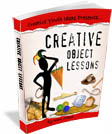I. Reasons to Read
- “The man who desires to grow spiritually and intellectually will be constantly at his books.”(148)
- “the spiritual leader must master God’s Word and its principles and know as well what is going on in the minds of those who look to him for guidance. To achieve those ends, he must, hand in hand with personal contacts, engage in a course of selective reading.” (148)
- “The spiritual leader should read for ‘spiritual quickening’ and profit, and that will strongly influence his selection of books for reading.”(151)
- “The spiritual leader should read with a view to ‘mental stimulation’.”(151)
- “He should read for ‘cultivation of style’ in his preaching and teaching and writing.” (151)
- “The leader should read… with a view to the ‘acquiring of information.” (151)
- “He should read in order to have ‘fellowship with great minds.’ “(152)
- “It is for the spiritual leader to cut a channel between what he reads and what he says or writes, so that others may reap its benefits to the full….many more ministers could communicate their appreciation of spiritual books to their congregations by guiding them in a course of selected reading.”(159)
II. The Choice of Books
- “Some are to be tested, others to be swallowed, and some few to be chewed and digested.” (150)
- “If it is true a man is known by the company he keeps, it is no less true that his character is reflected in the books he reads, for they are the outward expression of his hungers and aspirations.”(152)
- “Our reading should be regulated largely by what we are and what we do or intend to do.” (153)
- Biographies- “One cannot read the lives of great and consecrated men and women without having inspiration and kindled and aspiration aroused….It provides him with numberless illustrations for use in his own service.” (154)
- “It is better that we should always tackle something a but beyond us.”(155)
- “The leader should immerse himself in books that will further equip him for a higher quality of service and leadership in the kingdom of God.” (156)
III. How to read
- “It is easy to read. It is much more difficult to secure effectually the fruit of reading in the mind.” (156)
- “We cannot profit from what we read unless we think”(156)
- “Master those books you have.”(156)
- “Read little that is to be forgotten.” (157)
- “Read with pencil and notebook in hand.” (157)
- “Have… a book in which to put what is striking, interesting, and worthy of permanent record.” (157)
- “Verify as far as possible historical, scientific and other data, and let no word slip past until its meaning is understood.”
- “Let the reading be varied, because the mind so easily runs into ruts.” (157)
- “Reading should be correlated where possible”. (157)
- “He suggests that evey solid book requires three readings. The first reading should be rapid and continuous. The subconscious mind will then go to work on it and link it up with what you already know on the subject. Then take time to think what contribution it has made to your knowledge. The second reading should be careful, slow and detailed, as you think out each new point and make notes for later use. After an interval, the third reading should be fairly rapid and continuous, and a brief analysis should be written in the back of the book, with page references to subjects and illustrations.” (158)
Source: J. Oswald Sanders “Spiritual Leadership”
 MORE IDEAS? See “Creative Object Lessons”
MORE IDEAS? See “Creative Object Lessons”
200 page e-book that explains everything you need to know when planning your very own object lessons. It contains 90 fully developed object lesson ideas and another 200 object lesson starter ideas based on Biblical idioms and Names / Descriptions of God.
